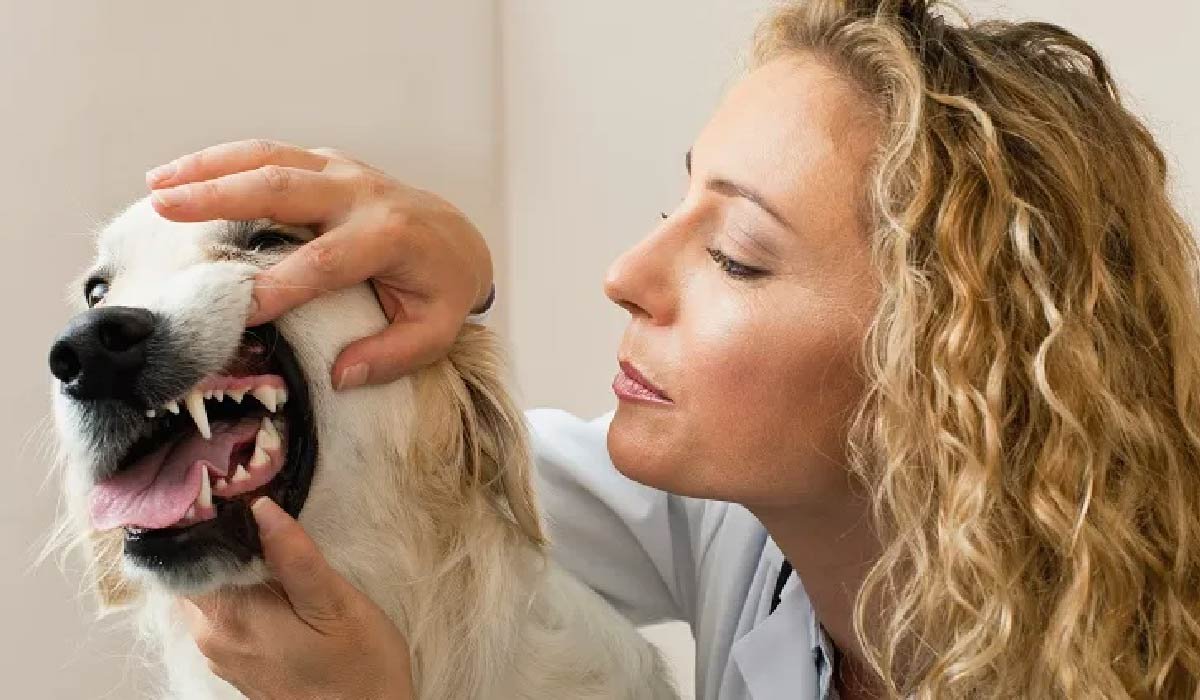Health
Ensuring Fido’s Smile: The Essentials of Pet Dental Health

When it comes to maintaining the well-being of our beloved four-legged companions, pet oral care often receives less attention than it deserves. It’s important to realise that dental health is an integral aspect of a pet’s overall health regime. A dog’s bright smile and fresh breath are not just about aesthetics; they serve as indicators of proper canine hygiene and well-being.
The Significance of Pet Dental Hygiene
Dental diseases are one of the most common health issues that affect pets, with studies showing a high prevalence among dogs as they grow older. Tartar buildup, gingivitis, and periodontal disease are not only problematic for the oral cavity but can also lead to systemic issues, including heart, liver, and kidney problems. Ensuring comprehensive oral hygiene is therefore essential for every pet’s longevity and quality of life.
Recognising Dental Issues in Pets
One of the primary challenges of pet oral care is recognising when a pet is in discomfort. Dogs are not able to articulate dental pain, and as a result, symptoms can often go unnoticed until they become severe. Bad breath, difficulty eating, pawing at the mouth, and visible tartar on teeth are all signs that your pet might be experiencing dental discomfort.
Routine Home Care for Your Pet’s Teeth
Preventative care is central to managing pet dental health. Routine home care, including regular tooth brushing, can significantly reduce the accumulation of plaque and tartar. Introducing tooth brushing early in life can help pets become accustomed to the experience. Use a toothbrush specifically designed for dogs and a pet-safe toothpaste, as human toothpaste can be toxic to animals.
Professional Pet Dental Services
Home care, while important, is not enough on its own to maintain optimal dental health. Regular professional check-ups are necessary to ensure that any potential issues are identified and addressed promptly. Professional pet dental cleanings involve a thorough examination of your pet’s mouth, followed by the removal of plaque and tartar from the teeth, both above and below the gum line.
Benefits of Maintaining Good Pet Dental Hygiene
Maintaining your pet’s dental hygiene is beneficial on multiple levels. Firstly, it can prevent tooth loss caused by gum disease and decay. Secondly, it eliminates bad breath, making interactions with your pet more enjoyable. Thirdly, it reduces the risk of painful infections and costly veterinary bills that come with advanced dental diseases.
The Role of Diet in Dental Health
The role of diet in maintaining dental health cannot be overstated. Certain types of food, particularly dry kibble, can have a mild abrasive effect on the teeth, helping to clean the teeth with each bite. Moreover, specially formulated dental diets and treats can contribute to plaque reduction and freshen breath.
Avoidance of Dental Diseases
To ensure the avoidance of dental diseases, vigilance is key. Periodontal disease, which affects the structures supporting the teeth, is irreversible once it progresses to an advanced stage. Early detection and treatment are imperative to the prevention of severe dental diseases and associated health complications.
Understanding Veterinary Dentistry
Veterinary dentistry is a specialised field that encompasses a range of services, including cleaning, adjustment, filing, extraction, and repair of pets’ teeth. Understanding the services provided by veterinary dentistry is vital for pet owners seeking to maintain the dental health of their animals.
Common Misconceptions About Pet Oral Care
There are several misconceptions about pet oral care that can compromise a pet’s dental and overall health. A common myth is that dogs naturally have bad breath, and while it’s not expected to be minty fresh, foul odour can indicate underlying dental issues. Another misunderstanding is that losing teeth is normal for aging pets; it’s usually a sign of disease rather than a normal aspect of ageing.
Regular Assessments Are Key
Annual veterinary assessments are an essential component of pet dental care. During a routine check-up, a vet can spot early signs of dental disease and recommend interventions to prevent further deterioration. Regular assessments provide an opportunity to ask your vet for advice on home care practices that suit your pet’s needs.
Advances in Pet Dental Technology
Advances in pet dental technology have made treatments more efficient and less invasive. Digital radiography allows veterinarians to view below the gum line, detecting any hidden problems early on. Treatments such as laser therapy can improve healing and manage pain in dental procedures.
Training Your Pet for Dental Hygiene
Training is just as important as any other aspect of pet dental care. Getting your pet to accept toothbrushing or dental inspections can take time and patience. Positive reinforcement and the gradual introduction of dental care routines are essential for success. Without proper training, even the best dental care practices can be difficult to implement.
In Summary: A Healthy Mouth for a Healthy Pet
In conclusion, pet dental health is a cornerstone of overall pet health. As responsible pet owners, it’s crucial to give attention to our pets’ dental care through routine home practices, regular professional cleanings, and vigilant observation for any signs of dental distress. By ensuring the oral hygiene of our pets, we not only safeguard their smiles but also contribute greatly to their overall quality of life and longevity. An integrated approach to pet dental care, equipped with knowledge, professional support, and dedication, is the key to ensuring that Fido’s smile remains bright for years to come.
For More Information, Visit Coopermagazine
-

 Celebrity1 year ago
Celebrity1 year agoWho Is Jennifer Rauchet?: All You Need To Know About Pete Hegseth’s Wife
-

 Celebrity1 year ago
Celebrity1 year agoWho Is Mindy Jennings?: All You Need To Know About Ken Jennings Wife
-

 Celebrity1 year ago
Celebrity1 year agoWho Is Enrica Cenzatti?: The Untold Story of Andrea Bocelli’s Ex-Wife
-

 Celebrity1 year ago
Celebrity1 year agoWho Is Klarissa Munz: The Untold Story of Freddie Highmore’s Wife
















